Nigeria is one of Africa’s most culturally diverse nations – and, from its unique music and art to its burgeoning film industry – literally called Nollywood – it’s one of the most creative, too. Vibrant, bustling, and absolutely huge (more on that later), Nigeria is also a fantastic hotspot for some amazing wildlife and is a genuine polyglot’s paradise.
But, that’s only a taster of what’s to come from this guide to all kinds of facts about Nigeria. It’s a nation that continues to surprise us – and, which also has some pretty important links to us here in the UK, too.
So, without further ado, here are some interesting facts about Nigeria that might just surprise you.
1. Nigeria has several neighbours and a coastline.
Found in the heart of West Africa, Nigeria shares borders with Niger to its north, Chad to its northeast, Cameroon to its east, and Benin towards its west. However, look to the south of the country, and you’ll see that there’s the Gulf of Guinea – giving Nigeria its coastline.
In total, Nigeria has land borders of around 2,515 miles, or 4,047 km. Most of this is shared with Cameroon and Niger, with the country’s border with Chad only measuring around 54 miles, or 87 km. The Niger River also flows through Nigeria, measuring around 691 miles, or around 1,111 km.
2. Nigeria uses the Naira.
If you’re planning on visiting Nigeria, make sure to change your money to the local currency, the Naira. At the time of writing, £1 is worth around 1,980 Naira, however, as always, you can expect this to change over time. In fact, at the end of 2024, the exchange rate between the UK and Nigeria dipped to as low as £1 to 1,291 Naira.
And yet, it hit its current peak of around 2,230 Naira in September of the same year! Look at the market fluctuations over the past few years, and you’ll also see a huge spike in May 2023 – when the amount of Naira you could get to the British pound almost doubled.
It’s thought that a shortage of physical cash in Nigeria helped to cause this issue, which helped to fuel what became known as the 2023 Nigerian currency crisis – and, as a result, the Nigerian government attempted to move citizens onto a new, digital currency.
3. Nigeria plays an important role in many important organizations.
The country is a member of organizations such as the African Union, or AU, the Economic Community of West African States, or ECOWAS, and the United Nations, or UN.
It’s also a firm member of the World Trade Organisation, the International Monetary Fund, and the World Bank. Therefore, Nigeria has a firm position, politically, on the world stage.
4. It’s easy enough to find Nigeria on the map.
If you look at a map of Africa, you’ll see that there is a curve bending downwards from the east, after it juts out. Just above the curve is Nigeria, and while it’s not the biggest country on the continent, it’s quite difficult to miss!
If you want to find Nigeria using a compass, however, you’ll need to take down the coordinates 9.0820° N, 8.6753° E – particularly useful if you’re planning a safari adventure any time soon!
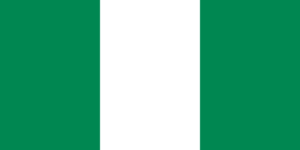
5. Nigeria typically welcomes tourists from elsewhere in Africa, but there are some visitors from the UK.
It’s estimated that there may be as many as 16,000 British people living in Nigeria right now, however, as far as tourism goes, tourists largely visit the country from bordering nations. Research, for example, suggests that Niger, Benin, and Cameroon all offer the most individual tourists each year.
There are no firm figures that suggest how many people from the UK visit Nigeria every year. UK Census data suggests that there are almost 271,000 people living across Britain who were born in Nigeria – meaning many from this number might travel to and from the country regularly.
6. Caution is advised if you want to travel to some areas of Nigeria.
According to the Foreign, Commonwealth and Development Office (FCDO), there are some areas of Nigeria that British people are advised not to travel to at the time of writing. These areas include the states of Borno, Adamawa, Gombe, Yobe, Katsina, Zamfara, Kaduna, Plateau, Taraba, and more.
The FCDO advises against travel largely because of increasing violent crime and kidnapping – and that, while there are some areas of Nigeria that British tourists are technically ‘safe’ to visit, extreme caution is still recommended at this time.
7. There are a few things you need to do before you can visit Nigeria.
If you do visit Nigeria from the UK and it’s safe for you to do so, there are a couple of bits and pieces to prepare for before you board.
For example, you’ll need to make sure that your passport expires at least six months after the date you intend to arrive. You should also apply for a visa if you want to visit Nigeria – even if you don’t intend to work or live there.
In addition, you’ll need to undergo health screenings – the country, for example, has strict admittance laws with regard to people who are at risk of bringing yellow fever.
8. Nigeria has a varied landscape.
The terrain here features vast southern lowlands, whilst the southeast boasts beautiful mountains, the north is covered mostly by plains and the centre of this wonderful country comprises hills and plateaus.
The tallest mountain in Nigeria is Chappal Waddi, which has the fitting nickname of ‘The Mountain of Death!’ It measures a staggering 7,936 feet or 2,419 metres. You’ll find it toward the Cameroon border.
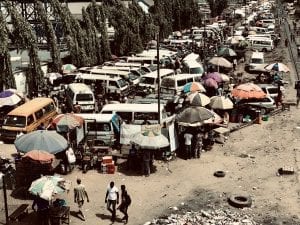
9. Nigeria is one of Africa’s biggest countries.
Africa’s home to some seriously massive countries, and Nigeria is just one of them –the total land area of Nigeria is around 356,669 square miles (that’s 923,768 square kilometres)… so, that’s more than three times the size of the UK!
As of 2024, Nigeria has over 218 million people living there, which makes it by far the most populated country in Africa and even the sixth most populated country on the planet. Compare that to the UK’s population of just over 68 million people – there are three times as many people living in Nigeria, as bizarre as that sounds!
10. Nigeria is very ethnically diverse.
Nigeria’s ethnic diversity is mind-blowing – there’s said to be around 300 different ethnic groups across the country, composed mainly of the Hausa-Fulani, the Yoruba, and the Igbo peoples.
Compare that, again, to the UK – there are around 19 ethnic groups at present, according to Census data from 2021. We won’t know of any changes to this number until the next Census, in 2031.
11. Nigeria’s capital city is massive, but relatively sparse.
Nigeria’s capital city of Abuja is certainly bustling – it covers an area of around 275 miles, or 713 square km, and has a population of more than four million people. Compare that to London, where there are nearly nine million residents!
The Greater London region, comparatively, is around 607 square miles in size, which is around 1,572 square km. So, our capital’s bigger and has more people, but the country is much larger and has three times the citizens. Just goes to show how concentrated London is!
12. Abuja wasn’t always the capital.
Abuja was officially declared the capital of Nigeria in 1991, replacing Lagos. That being said, Lagos is still the most populated city in Nigeria, and indeed in all of Africa, with over 16 million inhabitants in 2024. That’s six million more residents than there are in London!
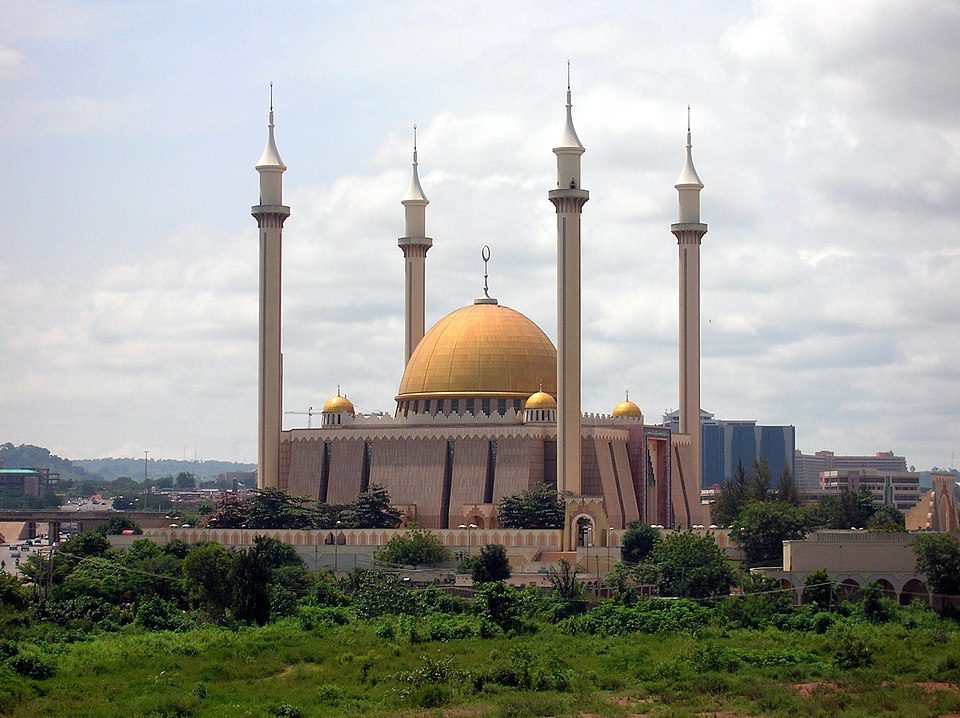
13. Nigeria has a varied climate.
Nigeria experiences both rainy and dry seasons, with the south experiencing an equatorial climate. That means it’s much hotter and certainly more humid in Nigeria than it is in the UK, where we have a maritime climate.
14. The Third Mainland Bridge is something of a record-breaker.
The Third Mainland Bridge, connecting Lagos to the mainland, is one of the longest bridges in Africa. It measures around 7.3 miles or 11.8 km long, and was in fact the longest bridge on the continent until 1996.
Comparatively, the longest bridge in the UK is the Bromford Viaduct, which is around 3.5 miles, or 5.6 km long – so, half the length of the Third Mainland!
15. Nigeria is replete with wildlife.
There are many species of wildlife endemic to Nigeria, including the Sclater’s Guenon and the Ibadan Marimba.
You’ll also find hippopotamus, leopards, lions, bats, elephants, manatees, and hyenas living across the country, which makes it hugely popular with safari goers.
16. It is a country of many languages.
English is known widely as the official language of Nigeria, and is also the language that is most commonly used for government uses, business across the nation, and even education.
However, there are over 525 native languages still spoken in Nigeria! The indigenous languages differ from region to region. By comparison, there are around 300 languages currently spoken and taught in the UK.
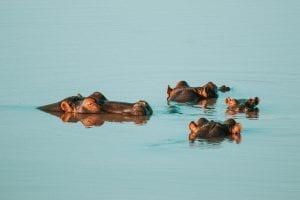
17. Nigeria is also home to several religions.
Islam and Christianity are the dominating religions in Nigeria. The northern regions are predominantly Muslim, while the southern regions are mostly Christian – with several indigenous practices elsewhere across the country.
Interestingly, despite the country’s serious religious diversity, many Nigerians practice religious tolerance. In fact, interfaith marriages are not unheard of in certain regions of the country!
In the UK, meanwhile, 46% of the country is Christian, while 37% of people identify with no religion – and this number is growing.
18. Nigeria has a large economy.
As of 2024, Nigeria reportedly has the fourth-largest economy in all of Africa! Unsurprisingly, perhaps, the biggest sector of the economy is resource extraction. This includes the extractions of crude oil, coal, and natural gas.
I was further surprised to learn that Nigeria is one of the world’s top oil producers and clearly has significant reserves of natural gas. It ranks 9th in the world in this regard, while the UK lags behind in 42nd!
19. Agriculture is also very important for Nigeria’s economy.
As important as the extraction of natural resources is, agriculture is also incredibly important in Nigeria, both for feeding the country and for contributing to the economy!
In fact, nearly 38% of the Nigerian population is employed in agriculture – it’s an industry that’s unlikely to dwindle any time soon. In the UK, around 286,000 people work in the industry – less than 1% of our population.
The main things that are grown in Nigeria include maize, yam beans, rice, sorghum, palm oil, and cocoa beans.
20. Nigeria is a highly literate nation.
Some of the most famous writers from this magnificent country include Chinua Achebe, Wole Soyinka (the first-ever African person to win the Nobel Prize in Literature), Ben Okri, and Chimamanda Ngozi.
If you don’t recognise any of these important names, you might recognise some of their works, such as Things Fall Apart, Arrow of God, Half of a Yellow Sun, and Stay With Me.
With regard to the country’s literacy rate, around 69% of the country can read and write. In the UK, it’s 99%.
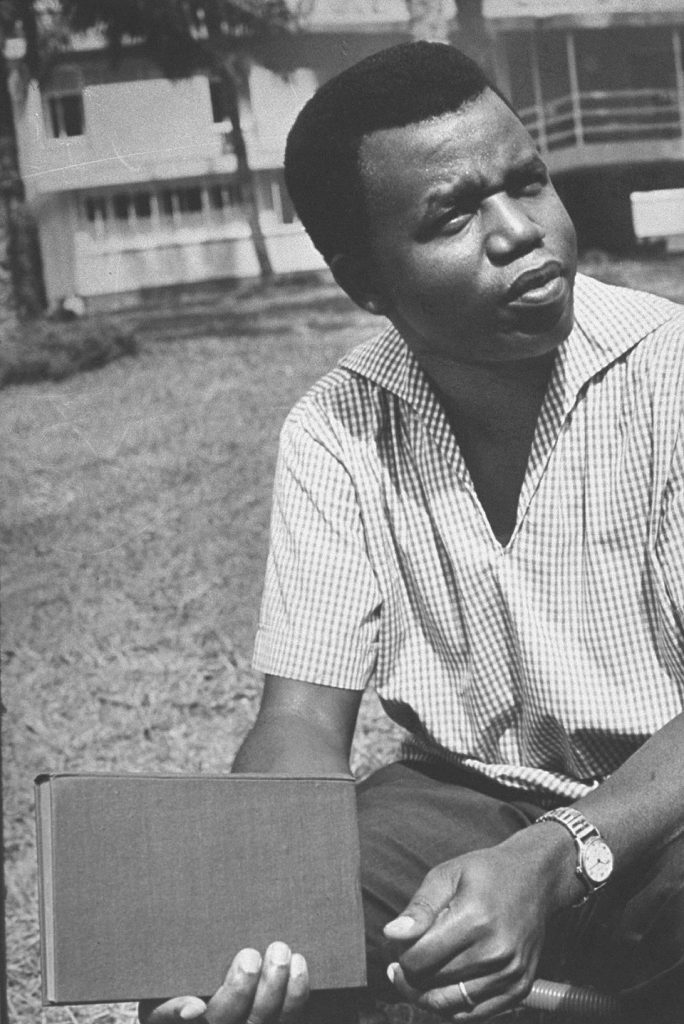
21. Nigeria has a huge movie industry.
Nigeria’s film industry is so big it even has its own name! Nollywood reportedly turns around more than a thousand different movies a year – it’s a wonder they haven’t run out of ideas yet!
Some of the most famous Nollywood films include Lionheart, Gangs of Lagos, Isoken, Up North, and Fifty.
22. Nigeria is a haven for music lovers.
Nigeria has a highly diverse and influential music scene, encompassing genres such as Afrobeat, pioneered by Fela Kuti, as well as Afropop, highlife, juju, and hip-hop.
If you are interested in learning more about Nigerian music and happen to be traveling here, you might want to participate in Felabration, a week-long festival celebrating the music and iconic life of Fela Kuti! There’s also the Lagos International Jazz Festival, the Gidi Culture Festival, and many more – there’s lots for music lovers to get into here.
23. Nigeria is an independent country.
In 1960, Nigeria finally gained its independence from Britain, an independence the country has proudly maintained.
Nigeria was under British rule for 60 years, the colonial period beginning in 1900. This is largely why most people in Nigeria speak English as an official language.
That said, it hasn’t always been plain sailing since the end of colonial rule here. The country has experienced both military and civilian rule since independence. However, it returned to democratic governance in 1999 after a series of military coups.
The relationship between the UK and Nigeria has remained a prominent staple of both countries’ foreign agendas. In fact, in November 2024, both countries’ foreign ministers agreed to build a ‘bilateral relationship’ to help each other achieve goals and improve ongoing discussions.
24. The country experienced a terrible Civil War.
Tragically, from 1967 to 1970, Nigeria experienced a bloody Civil War, otherwise known to many as the Biafran War. The conflicts took place mainly between the Nigerian government and the secessionist state of Biafra in the southeastern region.
It was estimated that between 500,000 and three million people died during the war – it’s a period of time that many look back on to respect the lives of those lost.
What’s more, it’s estimated that at least 45,000 Nigerian soldiers gave their lives to the British cause in World War II, forming parts of the 81st and 82nd West African divisions in the British Army.
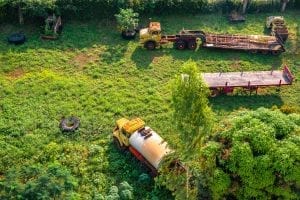
25. Nigeria is a federal republic.
Nigeria is officially composed of 36 states and the Federal Capital Territory, Abuja. It operates under a presidential system of government.
This type of government system means that Nigeria operates on a federal system whereby there are central and regional powers, and that people can elect regional candidates to represent them (as well as those on the national stage). It’s similar to the US system.
26. The country has many natural landmarks.
What really inspires me to go traveling around Nigeria is the incredible natural sights – including the world-famous Zuma Rock near Abuja, the Mambilla Plateau in Taraba State, and the Aso Rock, also in Abuja.
Around these incredible natural landmarks, you’re also likely to come across some of the country’s wonderful wildlife! Thankfully, the country also has several national parks to protect its beautiful beasts, including Yankari National Park, Cross River National Park, and Gashaka-Gumti National Park, which are home to elephants, lions, chimpanzees, and many other species.
27. Education is very important here.
Nigeria is also known for having multiple educational institutions, including the University of Ibadan, Ahmadu Bello University, and Obafemi Awolowo University, which are among the oldest and most prestigious in the country.
Thankfully, it seems more and more people will be able to attend school in Nigeria as the country’s literacy rate is improving. This is largely due to government and non-governmental efforts to boost access to education, particularly for impoverished girls and those living in rural areas.
According to the most recent data, an impressive 1.8 million students in Nigeria attended undergraduate studies at university. That’s close to the UK’s total of just over two million undergraduate students.
28. Nigeria has some incredible food!
Nigerian food is known for its rich and diverse flavours. Popular dishes include jollof rice, pounded yam, egusi soup, suya (spicy meat skewer), and akara (bean cakes).
Nigeria has also produced some of the World’s best chefs, including Fregz, Alex Oke, Cupid, and Stone.
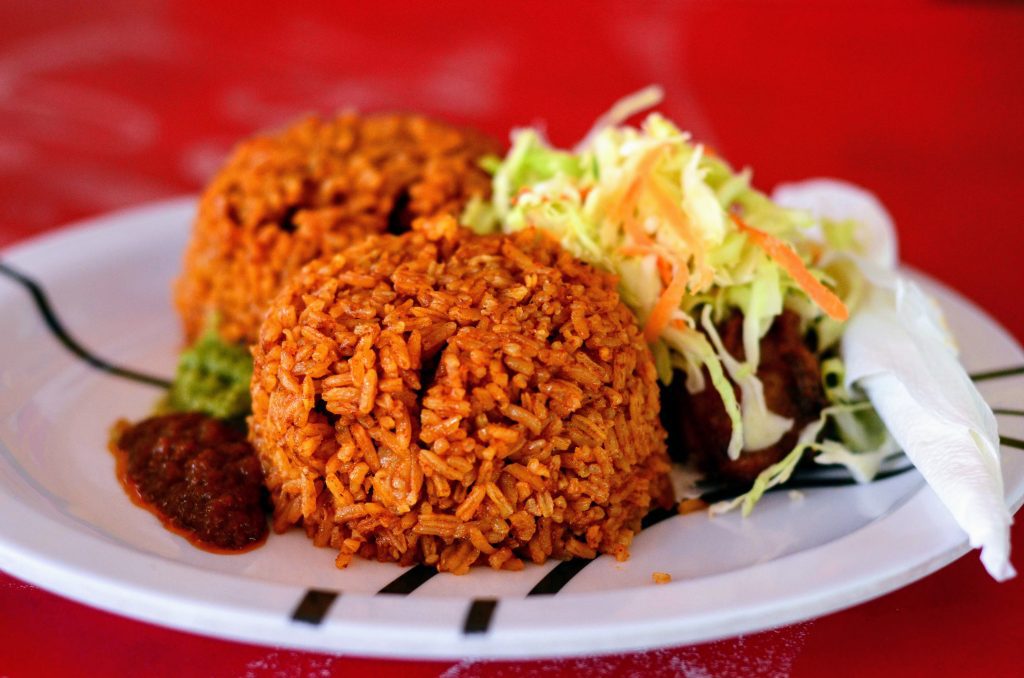
29. Nigeria is a nation of football lovers.
Football is by far the most popular sport in Nigeria. The Nigerian national team, known by millions as the Super Eagles, has won the Africa Cup of Nations multiple times and has qualified for the FIFA World Cup several times over. Their best performances in the World Cup came in 1994, 1998, and 2014 – as they finished in the top 16 each time.
Some of the most famous Nigerian football players from over the years include Nwankwo Kanu, Mikel John Obi, Vincent Enyeama, and Obafemi Martins.
Nigeria has played England three times in the past 30 years, and is yet to win (though they drew in the 2002 World Cup). They’ve played Scotland twice, however, and won once, drawing the second. They’ve yet to play Wales or Northern Ireland!
30. There are multiple cultural festivals that unfold across Nigeria.
Nigeria hosts many traditional festivals every year that go beyond music alone! People across the country make a big effort to celebrate the cultural heritage of its various ethnic groups. Notable festivals include the Durbar festival in the north, the Osun-Osogbo festival in the southwest, and the New Yam festival in the southeast.
31. Nigeria is also well known for its waterways.
Nigeria has some incredible lakes and rivers. Some of the major rivers in the country famously include the Niger and Benue Rivers, which converge at Lokoja.
Sadly, Lake Chad, once a significant body of water in the northeast, has significantly shrunk over the years. The lake shrank over time, mostly due to reduced rainfall. The shrinkage is also due to its water being overused and, of course, climate change.
The Niger River is the longest in the country at around 2,610 miles, or 4,200 km. It absolutely dwarfs the UK’s longest river, the River Severn, at 220 miles or 354 km long. It’s ten times the size!
32. Oil is a source of income and issues here.
As mentioned above, Nigeria has significant oil reserves, primarily located in the Niger Delta region. The oil industry is obviously a major contributor to the country’s economy.
However, as you can imagine, it has also been a source of environmental and social issues. Sadly, Nigeria still faces several environmental challenges, including deforestation, desertification, and pollution, particularly in the Niger Delta due to oil spills, which is what makes oil a source of political, social, and environmental issues both in the country and outside of it.
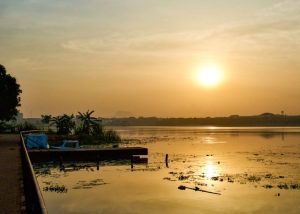
33. The country has undergone serious urbanization.
Nigeria has urbanized itself rather quickly! Cities such as Lagos, Abuja, Kano, and Port Harcourt have experienced significant population growth and development.
Tragically, the country still struggles with serious poverty levels – but, thankfully, the country has a growing entrepreneurial ecosystem. Lagos, in particular, is becoming a hub for startups and tech companies.
There are around 600 different startups in Lagos, according to recent statistics – fewer than London’s 8,900, however, there’s time still to grow!
34. The country has a huge diaspora.
Interestingly, around two million Nigerians live abroad, and much of the country’s natives live in other African countries. Nigerian emigrants appear to mostly leave for countries such as the United Kingdom, the US, and Canada.
However, the diaspora is actually very important for Nigeria as it contributes to the country’s economy thanks to remittances!
People who stay in Nigeria are mostly young people! Over 40% of the inhabitants of Nigeria are under the age of 14 – making it one of the youngest nations on the continent. In the UK, it’s around 16.2%. We have a much older population!
35. There’s a number of British High Commission Offices in Nigeria.
In place of British embassies, there are British High Commission Offices in Nigeria, such as the BHCs in Abuja and Lagos.
However, if you are a British citizen in Nigeria and need support, the FCDO recommends contacting them directly – they can help with emergencies and vulnerabilities.
36. There are several ways to get to Nigeria from the UK.
There’s a handful of airlines that offer direct flights from the UK across to Nigeria. For example, you can board flights via Virgin Atlantic, Delta, Finnair, British Airways, and Air Peace.
The main destinations in Nigeria that you can fly to include Lagos, Kano, Abuja, and Port Harcourt. You can travel from airports based across London, Edinburgh, and Birmingham – to name a few!
However, again, make sure you are safe to travel to Nigeria before booking tickets!
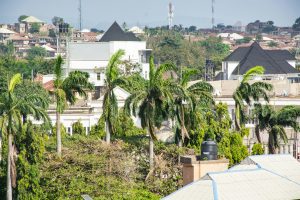
FAQs About Nigeria
Is Nigeria a rich or poor country?
Nigeria is considered a low-middle income country, ranking around 39th in terms of nominal GDP. It’s still classed as a developing nation, though has extensive oil and natural gas reserves.
What is life like in Nigeria?
Life in Nigeria is often referred to as fast and sometimes chaotic – which can suit a lot of people down to the ground! However, there are still problems with violence across the country.
What is Nigeria most known for?
Nigeria is probably best-known for its huge film industry, known as Nollywood, and its immense population and packed cities! It’s also a big oil and gas distributor on the global stage, and is well known for its love of football.
Do you know any fun facts about Nigeria? Share them in the comments below!
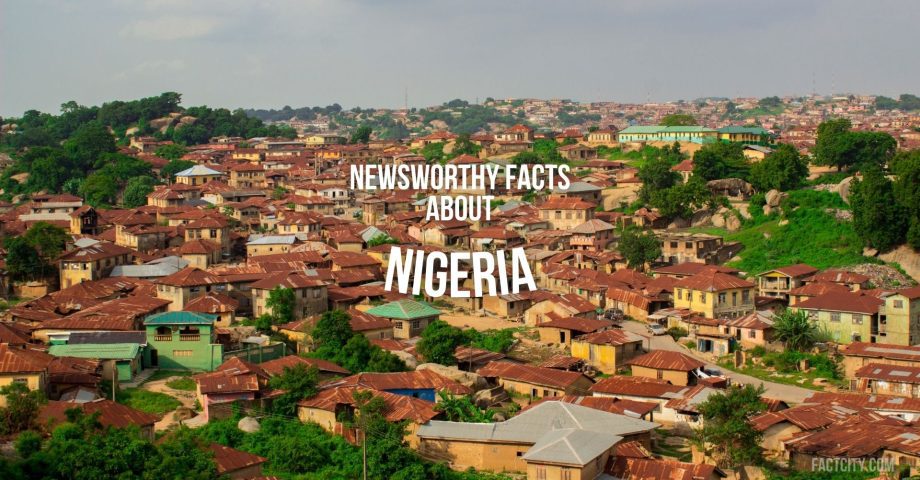










Comments are closed.